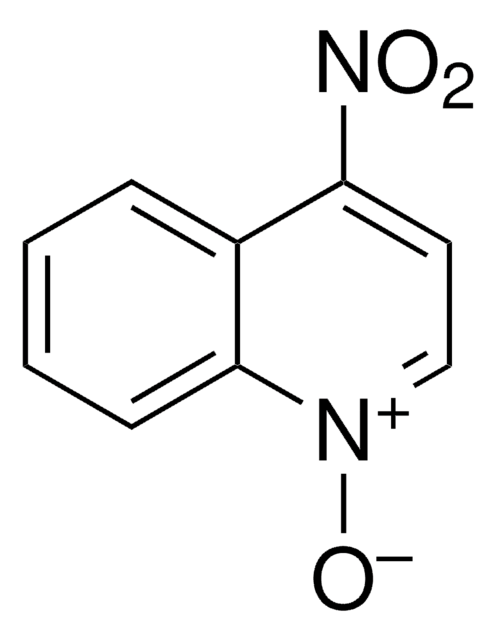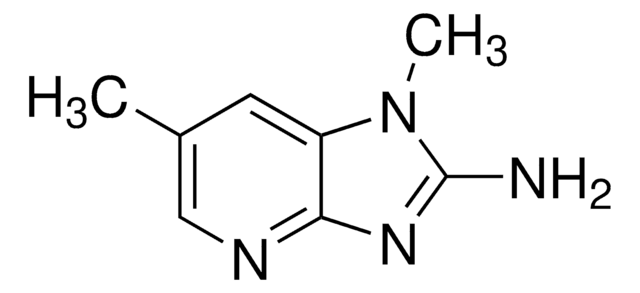SMB01383
PhIP
≥95% (HPLC)
Sinónimos:
2-Amino-1-methyl-6-phenylimidazo[4,5-b]pyridine
About This Item
Productos recomendados
biological source
synthetic
Quality Level
assay
≥95% (HPLC)
form
solid
shipped in
2-8°C
storage temp.
2-8°C
SMILES string
NC1=NC2=NC=C(C3=CC=CC=C3)C=C2N1C
¿Está buscando productos similares? Visita Guía de comparación de productos
General description
Biochem/physiol Actions
signalword
Danger
hcodes
Hazard Classifications
Acute Tox. 3 Oral - Carc. 2 - Eye Irrit. 2 - Skin Irrit. 2 - STOT SE 3
target_organs
Respiratory system
Storage Class
6.1C - Combustible acute toxic Cat.3 / toxic compounds or compounds which causing chronic effects
wgk_germany
WGK 3
flash_point_f
Not applicable
flash_point_c
Not applicable
Choose from one of the most recent versions:
Certificados de análisis (COA)
Don't see the Right Version?
If you require a particular version, you can look up a specific certificate by the Lot or Batch number.
¿Ya tiene este producto?
Encuentre la documentación para los productos que ha comprado recientemente en la Biblioteca de documentos.
Nuestro equipo de científicos tiene experiencia en todas las áreas de investigación: Ciencias de la vida, Ciencia de los materiales, Síntesis química, Cromatografía, Analítica y muchas otras.
Póngase en contacto con el Servicio técnico![Benzo[a]pyrene ≥96% (HPLC)](/deepweb/assets/sigmaaldrich/product/structures/253/820/be96d879-1811-46c0-8f11-612019691c2d/640/be96d879-1811-46c0-8f11-612019691c2d.png)
![2-Amino-9H-pyrido[2-3-b]indole ≥98% (HPLC)](/deepweb/assets/sigmaaldrich/product/structures/351/152/37c98523-590f-4b27-826c-5b3d4b502047/640/37c98523-590f-4b27-826c-5b3d4b502047.png)








